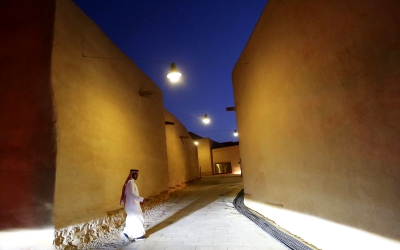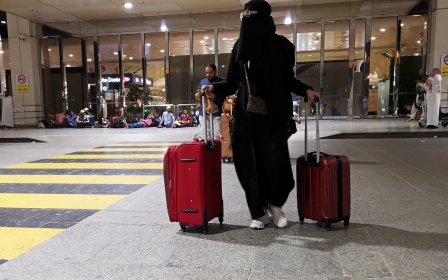Saudi Arabia allows foreign men and women to share hotel rooms in latest reform

Saudi Arabia will allow unmarried foreign men and women to rent hotel rooms together without proving they are related, as the ultra-conservative kingdom opens its doors to foreign tourists.
Women, including Saudis, will also be permitted to rent hotel rooms by themselves, in a break with previous regulations, the Saudi Commission for Tourism and National Heritage confirmed in a report on Friday, according to Reuters news agency.
New MEE newsletter: Jerusalem Dispatch
Sign up to get the latest insights and analysis on Israel-Palestine, alongside Turkey Unpacked and other MEE newsletters
Saudi citizens will still be barred from staying together in mixed-gender rooms unless they are married or part of the immediate family, and sex outside of marriage remains banned, the report said.
Saudi Arabia threw open its doors last week to foreign tourists from 49 countries as it tries to expand that sector and diversify its economy away from oil exports.
As part of the move, it decreed that visitors need not wear all-covering black robes but should dress modestly. Alcohol remains banned.
In preparation for the changes, last week Saudi Arabia listed 19 fineable violations related to public decency.
The offences listed on the new visa website include immodest dress, public display of affection, littering, spitting, queue jumping, taking photographs and videos of people without permission and playing music at prayer times.
Fines range from 50 riyals ($13) to 6,000 riyals ($1,600).
"The regulations are meant to ensure that visitors and tourists in the kingdom are aware of the law relating to public behaviour so that they comply with it," a government media statement said at the time.
Authorities are aiming for 100 million annual visits by 2030, Reuters reported, but an influx of tourists could push boundaries further and risks a conservative backlash.
The kingdom, relatively closed off for decades, has in recent years relaxed strict social codes, including segregating men and women in public places.
Under Saudi Arabia's older guardianship law, Saudi women were barred from travelling without permission from an assigned male guardian - usually a husband or family member.
Then in August Saudi Arabia issued a series of decrees granting women more personal freedoms, including the right to drive, travel without permission, obtain a passport and register child birth, marriage or divorce.
Supporters of the Saudi government have promoted the social reforms as part of a modernising drive implemented by Crown Prince Mohammed bin Salman.
Still, the reforms have been accompanied by a crackdown on dissent, including the arrest and alleged torture of a number of activists who have campaigned for years for women's right to drive.
Middle East Eye delivers independent and unrivalled coverage and analysis of the Middle East, North Africa and beyond. To learn more about republishing this content and the associated fees, please fill out this form. More about MEE can be found here.






